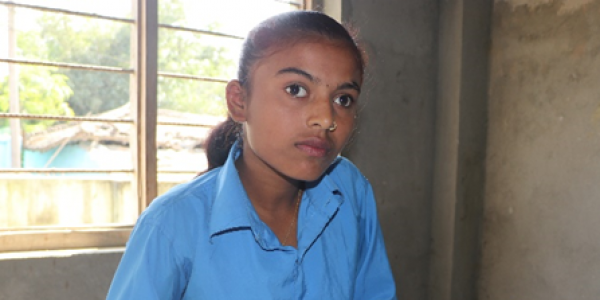
 How we’re tackling gender-based violence in Nepal
How we’re tackling gender-based violence in Nepal
Hear from Raj Karki, a volunteer working as a Diffusion Advisor on VSO's gender-based violence prevention project in Nepal.
May's featured volunteer
Namaste! My name is Raj Karki. I’m volunteering as a Diffusion Advisor on VSO’s Gender-Based Violence Prevention and Response project in Nepal. I’m looking forward to keeping you up to date with how we’re getting on and how your support is making a lasting difference to the lives of women and girls here.
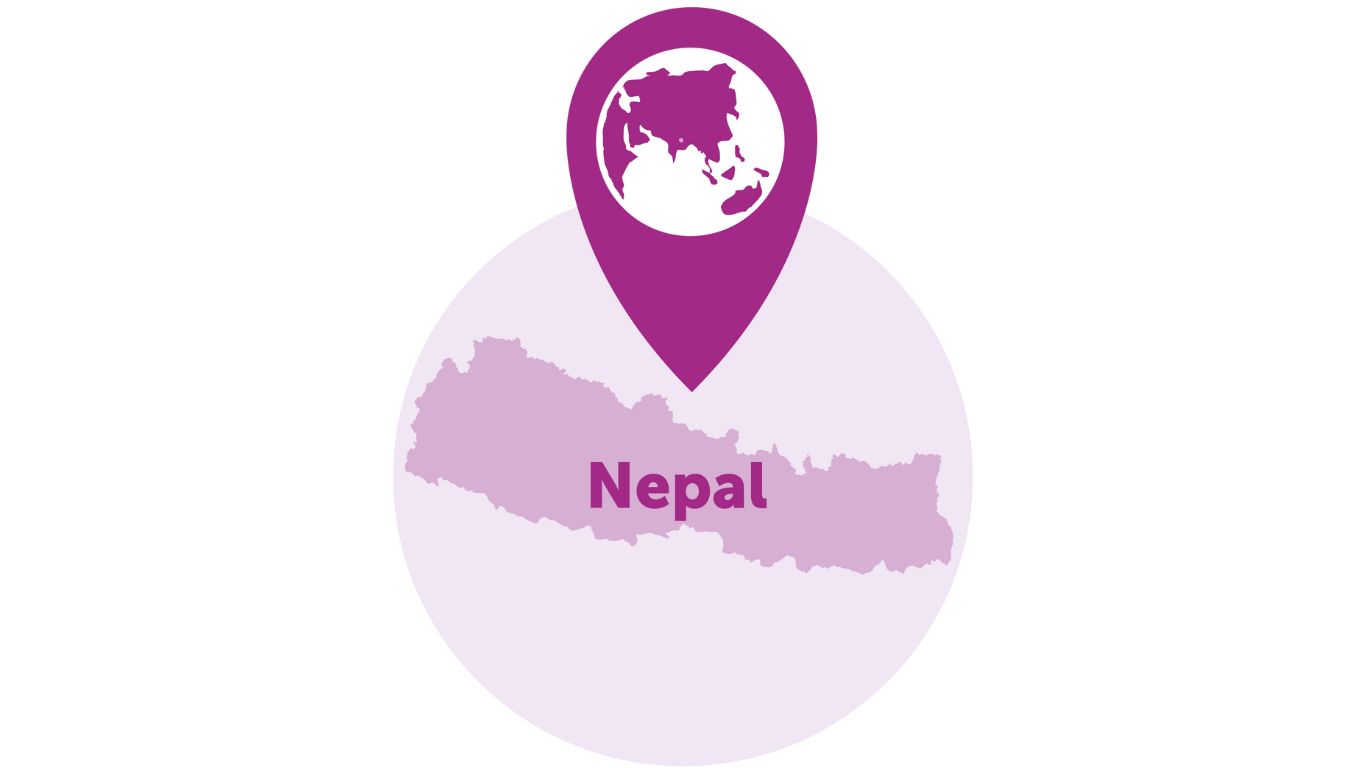
I’m delighted to be volunteering with VSO and to have the opportunity to share my experiences with you all. I’ve been in my role of Diffusion Advisor for just over a year, which has given me loads of opportunities to learn and grow, as well as use the knowledge I’ve gained over the years. Thank you for standing with me and helping to make a positive impact in my home country.
It is unacceptable that more than one in four women in Nepal experience gender-based violence in their lifetime. With your support, my colleagues and I are leading a range of prevention activities to stop violence against women and girls here. We’re doing this by running interactive sessions with couples, families, community groups and leaders to challenge social norms that value men and boys over women and girls. Working alongside other organisations, we’re part of an incredible movement to create long-lasting change.
May '23 volunteer update
Growing up in Nepal, I saw so many of my friends drop out of school just because they were girls. They would get married and have children at a young age, while boys like me stayed at school and got jobs to earn money.
These days, it is still expected that women will look after the home and the children. But without an education or any income of their own, many women can stay trapped in violent marriages, not knowing their rights or where to turn for help.
I was shocked to read in a recent World Health Organisation report1 that more than one in four women in Nepal experience gender-based violence in their lifetime. And those who are uneducated, live in rural areas, or come from the poorest households, face an even higher risk. I had no idea women in my country were suffering so much. It’s a terrible situation and can lead to long-lasting mental and physical health problems.
This project aims to prevent and respond to violence against women and girls across rural Nepal by focusing on three main areas:
- Prevention activities: Holding interactive sessions with couples, families, community groups and leaders to challenge social norms that value men and boys over women and girls.
- Response services: Strengthening services that support survivors of gender-based violence, such as mediation centres, health services and safe houses.
- Systematic change: Working with the government to support them to adopt policies and plans that promote gender equality and female empowerment.
With your support, my VSO colleagues and I are proud to be leading the project’s prevention activities. We’re also working alongside Ipas, an organisation who supports communities around the world to ensure access to abortion and contraception for all, and United Nations Population Fund (UNFPA), on response services and systematic change. Together, we’re part of an incredible movement to create lasting change here.
A bit about me and my role
I’ve been volunteering with VSO for over a year now, working from the Kathmandu office. This is my first office-based job, so everything was very new and exciting at the start. There was a lot to take in, but my manager and all the staff were very friendly, helpful and eager to guide me.
My role as a Diffusion Advisor involves a lot of data management and documentation, but every day is different. I could be gathering case studies and photography, creating social media posts, or collecting and analysing data to evaluate the impact of the project.
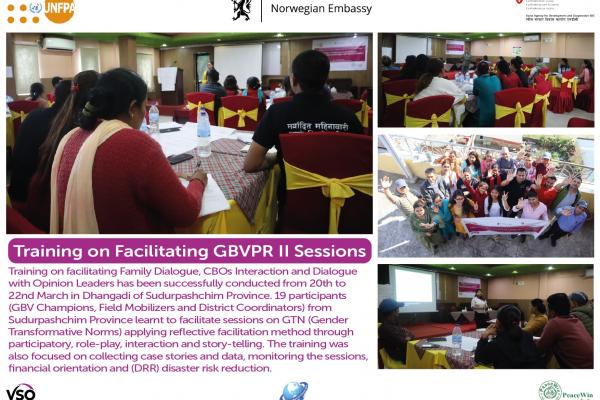
Before VSO, I was a full-time student. I’ve completed my Bachelor of Sociology and Major English, Post Graduate Diploma in Counselling Psychology, Master of Sociology, and I’m currently pursuing my Master of Psychology. I’m a keen learner and also passionate about promoting positive social change through blogs and video content.
I now live in a place called Makalbari, on the outskirts of Kathmandu. It’s much quieter than the city, with the beautiful Gokarna forest and Bagmati river right beside my house. When I’m not visiting the sites or my friends in Kathmandu, I spend time at home working on my college projects or simply relaxing and enjoying the natural beauty of the area.
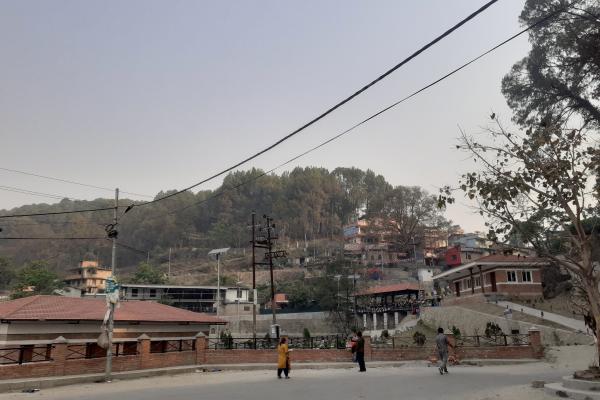
Have you ever been to Nepal? I'd love to hear what you think of the country if you leave me a message.
You can watch my video below for a sneak peek of my hometown and family home!
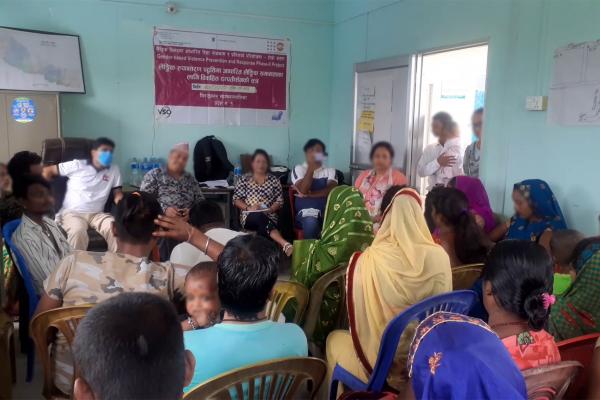
Positive project steps
It might not surprise you that violence within an intimate relationship is one of the most common forms of gender-based violence.
As part of our prevention activities, we hold sessions with couples to discuss and reflect on the practices within their family and community. These help couples to identify harmful attitudes and improve their understanding of gender-based violence.
During one of our sessions in Biratnagar, a small city in eastern Nepal, I asked couples about the difference this had made for them. The men shared that the sessions helped them to realise how many of their previous actions were actually violating the rights and freedom of their wives, daughters, or sisters. They reported that they had stopped doing such acts as a result of our intervention, and many committed to sharing these learnings within their communities.
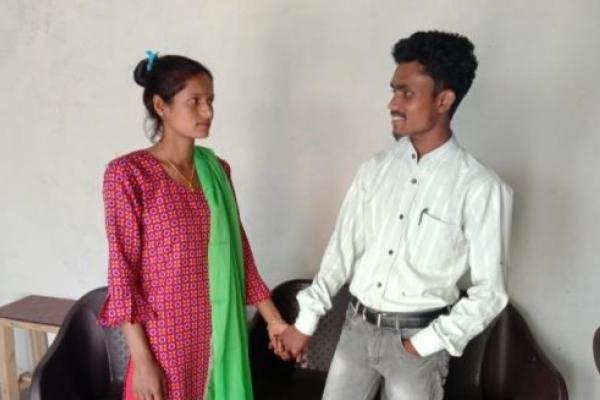
Some of the women told me that they had learnt to stand up for themselves by using the effective communication techniques my colleagues had taught them. They also felt more able to express themselves openly, were better aware of their rights, and knew where to seek help if needed. Hearing this was the highlight of my experience so far.
Suresh, a 22 year old, living in Sudurpaschim Province attended a couples session with his wife, Manisha. The session taught them about the potential dangers of early marriage, and they learnt how to navigate these issues to make the best for their future as a married couple.
SureshMy wife and I eloped and got married at a young age. At first our parents were angry, but they’ve learnt to accept us. We heard about the VSO couples sessions through a community volunteer and decided to join. I realised early marriage comes with its consequences which we didn’t consider at the time. However, the sessions taught us how to plan for the future in order to have a healthy married life. We’ve decided to wait to have a child and prioritise our education to ensure a secure future for our family.
What I’ve learnt so far
During my time on the project, I’ve learnt many beautiful things as well as some harsh realities. Change is slow but possible if we all work together with a common goal. It’s amazing having the opportunity to be a part of a significant movement happening in my own country and seeing the positive changes we’re making.
I’d like to thank you for choosing to give a regular gift and sponsoring a volunteer like me through VSO. The situation for women here can be very upsetting and it can sometimes feel like we are the only ones fighting for them. It’s incredible to know that you are with us, even from the other side of the world.
I’ll be back in touch again soon to share more updates and to let you know how your support is making a lasting difference to the lives of women and girls across rural Nepal.
Thank you for your amazing support!
Raj
VSO Diffusion Advisor, national volunteer tackling gender-based violence, Nepal.
P.S. Don’t forget you can ask a question or leave me a message below. Although I may not be able to get back to everyone, I’d really love to hear from you.
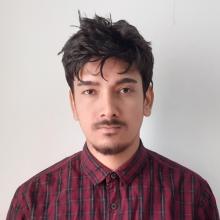
Want to ask a question?
VSO’s Sponsor a Volunteer team will share your message with the VSO volunteer and get back to you with a response. Your email address will not be used, disclosed or transferred to any VSO personnel, it will be stored securely in accordance with VSOs privacy policy. A sample of messages including display names will be published to the Sponsor a Volunteer homepage each month.
Your latest questions answered


I am glad you are in good health and I am so happy and thankful that you are actively supporting VSO in it’s endeavor to uplift people in Nepal and other part of world. Dear Anthony, I also hope one day we all human will learn to live in peace and unity but we shouldn’t give up too early, we should keep pushing and do whatever we can, no matter how small.

Happy New Year to you too. Thank you for supporting VSO.
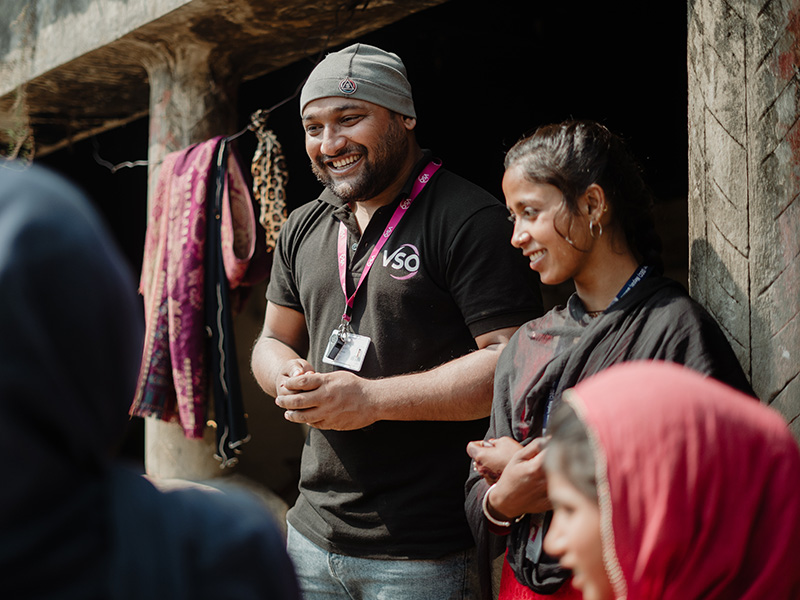
Did you know?
We bring about lasting change not by sending aid, but by working through volunteers to empower communities in some of the world’s poorest regions. You can read more about VSO’s areas of work and discover more about our projects here.

More news from VSO
Breaking down stereotypes of people with disabilities
15 years old Nisha is a resident of Sakraul, Nepal living with a disability. People in her community used to call her names which hurt her feelings and broke her confidence down. Now she's returned to school and the communities sees that she can do anything. Read her story.

